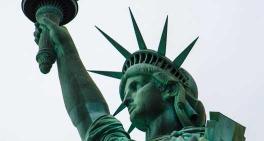Nissan ex-chair Ghosn appeal on extended detention rejected
National Court News
Japan's top court said Thursday it has rejected an appeal by former Nissan Chairman Carlos Ghosn's lawyers against his extended detention after his fourth arrest on allegations of financial misconduct.
The decision upholds the extension of his detention through April 22 that was approved Monday by the Tokyo District Court.
The Supreme Court ruling was made Wednesday and conveyed to foreign media on Thursday.
Ghosn was first arrested in November and charged with under-reporting his retirement compensation and with breach of trust. He was released March 6 on bail, but was arrested again on April 4 on fresh allegations and sent back to detention.
Rearresting a suspect released on bail, which is allowed only after indictment, is rare and has triggered criticism of Japan's criminal justice system, in which long detentions during investigations are routine.
Ghosn, who led Nissan for two decades and is credited with turning around the company from near-bankruptcy, has denied any wrongdoing.
In a separate legal maneuver, the Tokyo District Court has rejected an appeal by Ghosn's lawyers questioning prosecutors' confiscation of video of security camera installed at Ghosn's apartment, Kyodo News reported Thursday. The court did not respond to calls after office hours.
Last week, Nissan's shareholders voted to remove Ghosn from the company's board.
In his video statement filmed before his arrest and released by his lawyers April 9, Ghosn accused some Nissan executives of plotting against him over unfounded fears about losing their autonomy to their French alliance partner Renault SA.
Related listings
-
High court won’t referee dispute over Michael Jordan images
National Court News 03/25/2019The Supreme Court said Monday it won’t step in to referee a copyright dispute between Nike and a photographer who took a well-known image of basketball great Michael Jordan. That means lower court rulings for the athletic apparel maker will sta...
-
Supreme Court tosses $315 million award in USS Cole lawsuit
National Court News 03/23/2019The Supreme Court on Tuesday threw out a nearly $315 million judgment against Sudan stemming from the USS Cole bombing, saying Sudan hadn't properly been notified of the lawsuit.The justices ruled 8-1 that notice of the lawsuit should have been maile...
-
Court records reveal a Mueller report right in plain view
National Court News 02/24/2019The Democrats had blamed Russia for the hacking and release of damaging material on his presidential opponent, Hillary Clinton. Trump wasn’t buying it. But on July 27, 2016, midway through a news conference in Florida, Trump decided to entertai...

USCIS Will Begin Accepting CW-1 Petitions for Fiscal Year 2019
On April 2, 2018, U.S. Citizenship and Immigration Services (USCIS) will begin accepting petitions under the Commonwealth of the Northern Mariana Islands (CNMI)-Only Transitional Worker (CW-1) program subject to the fiscal year (FY) 2019 cap. Employers in the CNMI use the CW-1 program to employ foreign workers who are ineligible for other nonimmigrant worker categories. The cap for CW-1 visas for FY 2019 is 4,999.
For the FY 2019 cap, USCIS encourages employers to file a petition for a CW-1 nonimmigrant worker up to six months in advance of the proposed start date of employment and as early as possible within that timeframe. USCIS will reject a petition if it is filed more than six months in advance. An extension petition may request a start date of Oct. 1, 2018, even if that worker’s current status will not expire by that date.
Since USCIS expects to receive more petitions than the number of CW-1 visas available for FY 2019, USCIS may conduct a lottery to randomly select petitions and associated beneficiaries so that the cap is not exceeded. The lottery would give employers the fairest opportunity to request workers, particularly with the possibility of mail delays from the CNMI.
USCIS will count the total number of beneficiaries in the petitions received after 10 business days to determine if a lottery is needed. If the cap is met after those initial 10 days, a lottery may still need to be conducted with only the petitions received on the last day before the cap was met. USCIS will announce when the cap is met and whether a lottery has been conducted.




